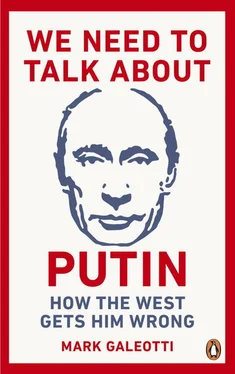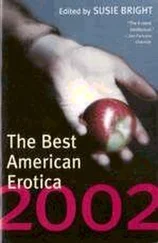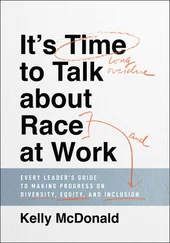Zhirinovsky’s Liberal Democrats receive a lot of Kremlin money for advertising, and the Communists still have the remnants of their old organisation and a near-inexhaustible army of Stalinist grannies volunteeering to push leaflets through letterboxes. But the leadership of both parties seem to have effectively accepted their role as the fake opposition. The only figure who might have had the will and ability to give Putin a run for his money, if not beat him, was anti-corruption campaigner Alexei Navalny, but thanks to a distinctly dubious court case, he was barred from standing.
Navalny’s boyish charm, quick wit and detailed accounts of the dodgy deals and luxurious homes of the elite have made his Internet-distributed videos popular as devastating indictments of the open-mawed corruption of late Putinism. His 2017 video ‘Don’t Call Him Dimon’ blew away Dmitry Medvedev’s image as a relatively clean member of the government, claiming that he had embezzled almost a billion pounds through fake charities. A 2018 video about the alleged corruption of Viktor Zolotov, commander of the National Guard, provoked him into challenging Navalny to a duel and promising to ‘pound him into a juicy steak’.
It is a mark of the concern that the Kremlin has about Navalny that on the one hand they keep throwing him into prison for thirty days here, a few months there, but at the same time they hold back from treating him more seriously – as will be discussed in Chapter 9, the idea that this is a regime that disposes of enemies without a second thought is actually very wrong. Navalny is essentially banned from television (where even mentioning his name is taboo), but he is a savvy and effective political operator on the Internet, which remains his main method of mobilising support. ‘Don’t Call Him Dimon’ was viewed 1.5 million times in its first day alone. The Kremlin is keenly aware that his message is potentially dangerous, not least as every Russian from a neurologist in Novosibirsk to a street-cleaner in Stavropol has their own experiences of corruption and knows full well that the great and the not-so-good enjoy privileged lives at their expense.
Despite trying to muzzle Navalny, despite having ensured that the alternatives to Putin were unelectable and unappetising, the government still rigged the 2018 elections. There were numerous cases of soldiers and factory workers being told for whom to vote, of people being bussed to multiple polling stations to vote at each, and of station staff openly stuffing handfuls of fake ballots into the boxes, in full view of the cameras that had been installed to stop precisely that kind of behaviour. This was due less to any Kremlin directive so much as the momentum of the system: local officials, terrified that a bad result for the boss from their district would reflect badly on them, or who thought they had received a signal from Moscow, went ahead and rigged things as usual, sometimes to the Kremlin’s embarrassment.
However, the electoral corruption was also a product of a clear sense from Putin and his political technologists that it is not enough just to be in charge – it is important to be able to claim an overwhelming popular mandate. The purpose of elections in Russia is not to determine who will get to run the country – that is a foregone conclusion, and no incumbent has ever lost power through the ballot box – but to demonstrate why it is right that they do.
Furthermore, it is clear that the Kremlin does not feel wholly confident and comfortable, despite those seemingly strong approval figures. Putin and his political managers in the Presidential Administration may not have had a direct role in the rigging of the 2018 poll (though even if they did not, they certainly were involved in rewriting later local election results), but they certainly bombarded the country with propaganda beforehand. It says something that they kept not just Navalny but other politically awkward figures, such as the ultra-leftist firebrand Sergei Udaltsov (who has spent most of the time since 2012 either in prison or under house arrest), off-screen. It says something that the government continues to maintain its grip on television and that it continues to explore ways in which it could control the Internet. It may not be able to replicate’s Beijing’s draconian ‘Great Firewall of China’, but by arresting and imprisoning people who post or retweet even mildly anti-government messages, it is able to create a climate in which people don’t dare to share such views. It says something that Putin created the National Guard – an independent force dedicated to domestic security, with some 180,000 armed troops and as many security guards – in 2016, and put his loyal henchman Zolotov in charge. It says something that the Kremlin is trying to squeeze non-government organisations that tackle issues such as corruption, police brutality and electoral fraud, closing them down, blocking their funding and harassing their workers.
These actions all attest to the Kremlin’s deep concerns about just how firm its grip on the hearts and minds of the Russian people may be. After all, what do people mean when they support Putin? They are not necessarily saying that they like the idea of their sons dying in Syria, or of Putin’s cronies enriching themselves through their taxes. Indeed, when polled about their overall confidence in the direction the country is going and what kind of Russia they want for their children, people show a much more nuanced understanding of the political situation. According to the data compiled by the Levada Center, arguably the best remaining independent polling agency in Russia, only a small majority of people are still willing to believe their country is on the right track.
Russians can be unhappy, yet still loyal. Putin is to a large extent being rated not as a man, not even as a politician, but as an icon of Russia. To vote for him is not to endorse a programme, but to express patriotism. By ascending into the heavens as a symbol of the country, the blessed son of the Motherland, has Putin become more or less powerful? A bit of both. On the one hand, it grants him a special, almost mystical status, which separates him from any rival. But at the same time, it means that we should not assume that those approval ratings, whether they are in the sixties or the eighties, mean anything like that much support for his regime, his policies or even Putin-the-man.
The Russian people are as much Putin’s first victims as his devoted supporters. His election in 2000 was won as a result of not just massive state pressure and the absence of a viable alternative, but also of real public relief. Whatever their affection for Boris Yeltsin, his increasingly erratic antics, as pills and alcohol turned him into a caricature and a punchline, were plain for all to see. Besides which, war was brewing in the North Caucasus and a series of mysterious terrorist bombings – which many believe were arranged by Putin’s supporters to terrify the public into backing a ‘security first’ candidate – left people looking for a credible (and sober) defender of the nation. When, in 2002, a girl band sang that they wanted ‘A Man Like Putin’ (‘I want a man like Putin, who’s full of strength. I want a man like Putin, who doesn’t drink’) it was not only a little tongue-in-cheek, it could just as easily have been titled ‘I Want Someone Nothing Like Yeltsin’.
Putin is not a natural campaigner: he is often uncomfortable in public and, if anything, has withdrawn more and more from his own people. Aside from the carefully constructed action-man photo opportunities, he is intensely private. For a long time, there was not even confirmation of the identities of his two children, Katerina and Mariya, and his alleged relationship with Olympic gold medal-winning rhythmic gymnast Alina Kabaeva is still very much off-limits.
Читать дальше












